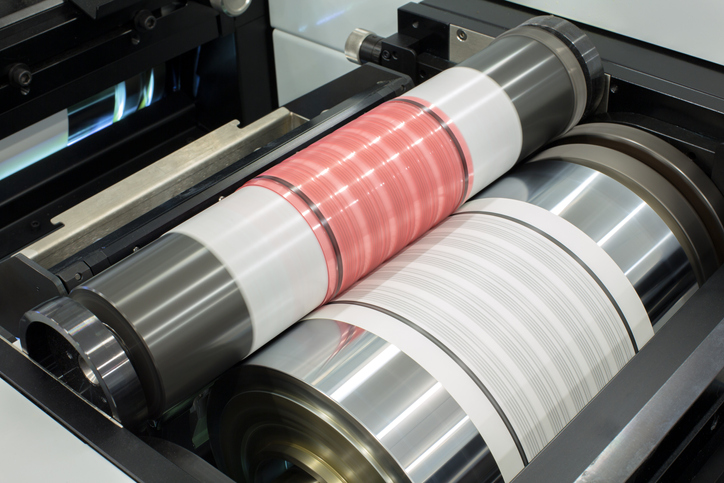When diving into the world of printing, one crucial component that stands out is the anilox roller. Known for its pivotal role in various printing processes, understanding its function and significance can greatly enhance printing quality. This article sheds light on anilox rollers, particularly for those involved in marketing and printing industries.

Understanding Anilox Roller
An anilox roller is a specialized tool used to apply a consistent layer of ink to a printing plate. It’s essential in flexographic printing, as it ensures the right amount of ink is transferred, maintaining high-quality image prints.
The Anatomy of An Anilox Roller
The anilox roller is crafted from a hard cylinder, often ceramic-coated, engraved with thousands of tiny cells. These cells are responsible for carrying a specific volume of ink to the plate.
Functions and Importance
The role of the anilox roller is vital in ensuring that ink is distributed evenly across the printing plate, which directly impacts the clarity and precision of the printed material. It plays an essential role in reducing ink waste and enhancing print consistency.
How Anilox Rollers Work
The process begins with the roller picking up ink from an ink tray. The excess ink is then wiped off using a doctor blade, ensuring that only the necessary amount of ink remains within the cells. As the anilox roller rotates, it transfers this ink onto the printing plate, which in turn, prints the image onto the substrate.
Materials Used in Manufacturing
Anilox rollers can be made from different materials, each offering unique benefits. Common materials include ceramic, which offers durability and chemical resistance, and chrome, known for its cost-effectiveness.
Cell Geometry and Its Impact
The geometry of the cells engraved on the anilox roller is critical. Variables such as cell shape, depth, and count influence how much ink the roller can hold and consequently transfer.
Optimization in Printing
Using the right anilox roller specification for your printing needs is crucial. Over time, printers should evaluate their needs and select rollers with suitable specifications, such as cell volume and lpi (lines per inch), to optimize their results.
Challenges with Anilox Rollers
Over time, wear and tear or improper maintenance can affect a roller’s performance. Regular cleaning and inspection are essential to maintain high-quality prints and prolong the life of the roller.
Regular Maintenance Needs
Maintaining an anilox roller involves regular cleaning procedures. Techniques such as ultrasonic cleaning or chemical cleaning ensure that the roller continues to function efficiently.
Repair and Replacement
While anilox rollers are designed to last, they are not impervious to damage. Regular inspection can help in identifying any defects early when repairs are often still possible. In cases where damage is beyond repair, replacement is necessary.
Innovations and Future of Anilox Rollers
Technological advancements continue to evolve in the field of printing, bringing improvements to the design and efficiency of anilox rollers.
Advanced Coating Techniques
Innovations in coating techniques have enhanced the durability and performance of anilox rollers. Ceramic coatings, in particular, have become an industry standard due to their resilience.
Adapting to Digital Printing
As digital printing becomes more prevalent, adaptations in anilox roller technology ensure that they continue to meet evolving requirements.
Conclusion
Understanding what is anilox roller equips professionals better in optimizing printing processes, thereby enhancing the final product quality. As the industry continues to evolve, embracing innovations surrounding anilox rollers will undoubtedly be crucial for sustained success.

FAQs
What is the primary function of an anilox roller?
It transfers a uniform layer of ink to the printing plate, affecting the quality of the print.
How long do anilox rollers typically last?
With proper maintenance, they can last several years, though the lifespan depends on usage and care.
Why is regular cleaning critical?
Proper cleaning ensures that the roller continues to transfer ink consistently without defects.






